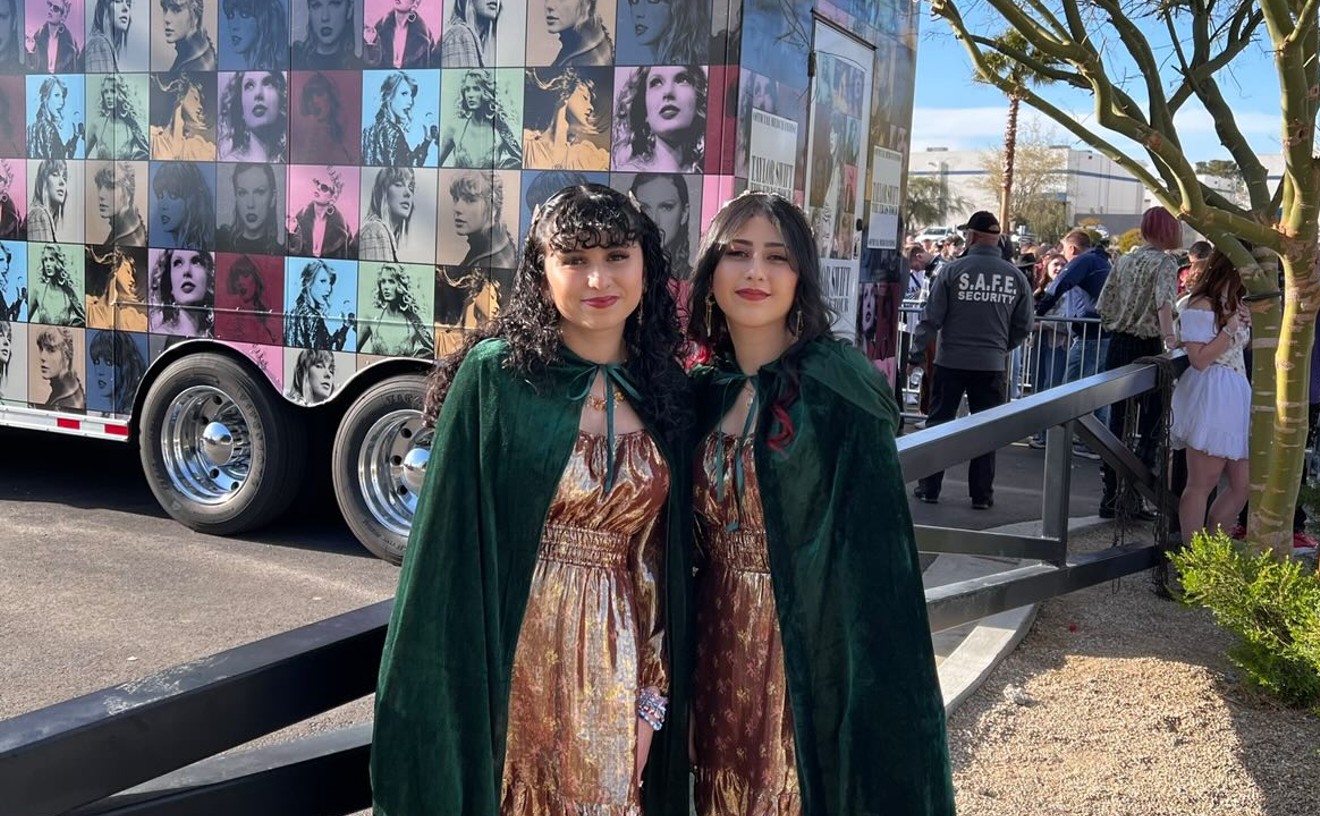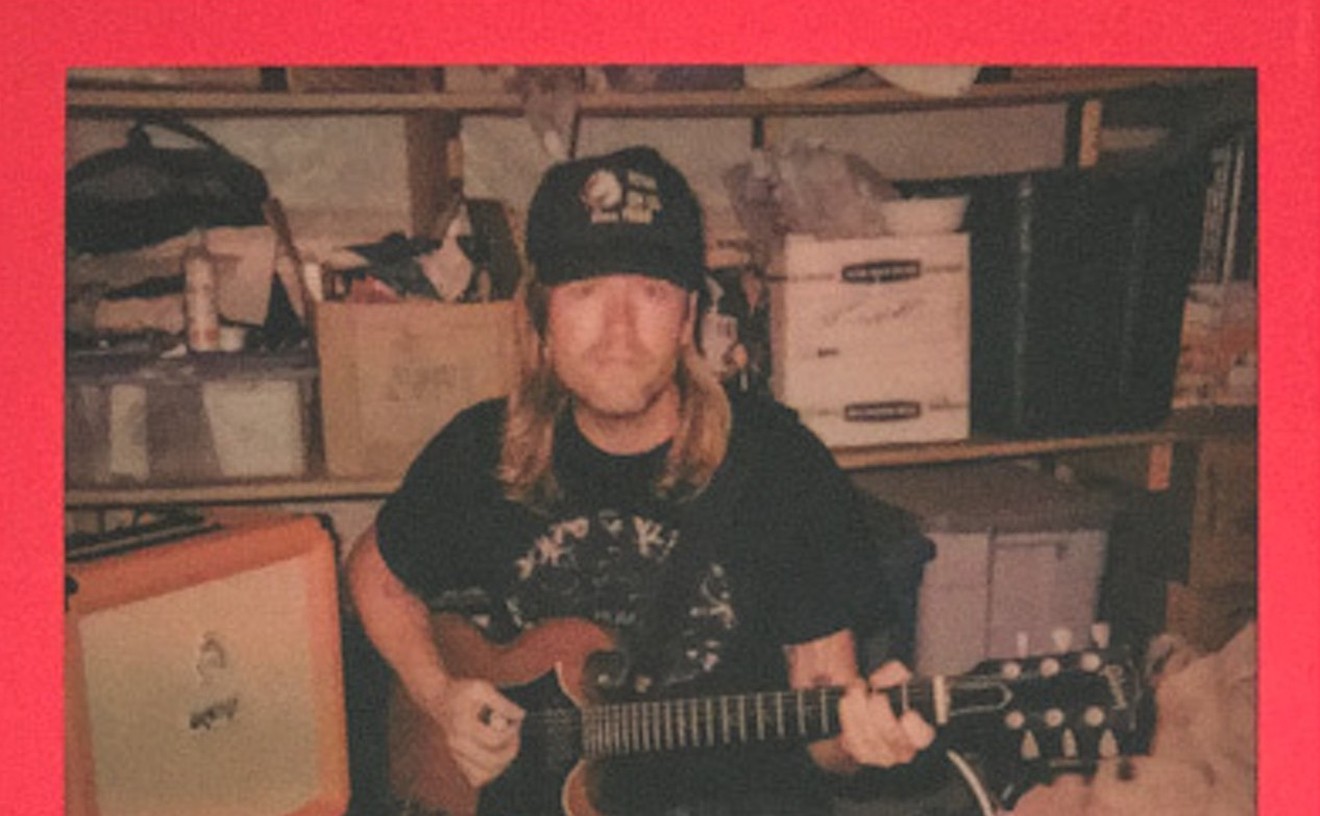I don't know about you, but when I pay cover at Rubber Gloves, the Double Wide or the Granada, I would rather not see any of the money going to the Black-Eyed Peas. In a roundabout way, however, this is often exactly what happens.
Organizations such as ASCAP (The American Society of Composers, Authors and Publishers), BMI (Broadcast Music Inc.) and SESAC (Society of European Stage Authors & Composers) were founded in the first half of the 20th century to protect the rights of artists and songwriters, creating networks with which to collect royalties from radio, TV and live performances of copyrighted material. It was a system that worked beautifully in its time, but times have changed.
In recent decades, ASCAP and BMI have both become more aggressive in pursuing monetary compensation from music venues, restaurants and retail establishments that feature live or recorded music (though some satellite radio and jukebox services include the price of licensing in their fees). Whether it's a 20-piece band playing the swing hits of yesteryear in a dinner club or an 18-year-old playing Joni Mitchell songs in a coffeehouse corner, the organizations have shown they're perfectly willing to do whatever it takes to get the money that legally belongs to their artists, no matter how logical or illogical it may seem. ASCAP even went after summer camps and Scout organizations in the mid-'90s, claiming that fireside performances of "Puff the Magic Dragon," "One Tin Soldier" and the like entitled the publishers to royalty fees.
Of course, no one's arguing that a club that books a large number of cover bands shouldn't pay up (by all means, ASCAP, anything you can do to bring Firewater to its knees would be awesome). But Josh Baish, owner of Denton's Rubber Gloves, has had a hard time coming to terms with why his business should submit to the music publishing mafia.
"[ASCAP] was after me for $8,465 [in back fees]," says Baish. "After talking to their rep, he says, 'OK, well I'm gonna knock off all these interest payments' and this, that and the other...so pay me $500. It's just like he pulled that number out of his ass. OK, you're hitting me up for $8,000 and then, OK, now it's at $500. I mean, where is the scale, you know? You're sliding all over the place."
ASCAP has, however, offered to help Baish get right in the eyes of the law, offering him the chance to purchase a blanket license—to the tune of $1,700 a year. That doesn't include the amounts BMI and SESAC will undoubtedly come calling for if he pays their competitor. For a small venue such as Rubber Gloves, these fees could easily break the bank. And if he doesn't pay, the prospect of ASCAP suing him is very real—and did we mention they've never lost a case? (In such suits ASCAP often seeks fines of $30,000 per copyrighted song played—if the owner of the venue is unaware of the violation. If bands play a cover with the owner's permission, the fine skyrockets to $150,000 per song).
Make no mistake—Baish claims he's perfectly willing to pay artists. He just doesn't see how it's fair when a smaller venue such as Rubber Gloves is held to the same standard as a venue that books nothing but cover bands. "I try to be honest with them and go, 'Look, I can't tell people not to play covers.' I had this sign on the side of the stage, and that was laughed off...it's gonna happen. We don't hire cover bands, but if someone throws in a cover, then by all means, monitor it, write down the [original artist] and let me cut 'em a check."
Unfortunately, this is not how ASCAP operates. According to ASCAP representative Vincent Candilora, that method just isn't economically feasible. "You could submit a list of all the songs that have been performed," he says. "Now whenever anybody submits what they're performing, we're gonna have to, at some point, go in and audit, maybe at least once a year...The costs of auditing, the costs of receiving these set lists from all the establishments in the country that are using live music...that would have them paying fees higher than what the straight blanket license is.
"In principle I understand where they're coming from," he says. "But from an economic standpoint, it's just not a very good way to do it."
Instead, ASCAP takes those fees and uses a computer system to assign royalties to member artists on a scale based on the sampling of play lists from satellite, Internet and terrestrial radio. ASCAP members can also submit music-use reports of their own compositions, though the amount given out for such reports amounts to little more than $3 million a year, Candilora says. Basing how royalties are distributed on radio airplay is fine and dandy if you're, say, Fergie or Lee Greenwood. But what if you're Brent Best of Slobberbone and the Drams, who, outside of a brief romance with Lone Star 95.3 FM, has a presence on the airwaves best likened to a drop in the ocean?
As Best himself recently put it on the popular Denton Rock City message board, "I am an ASCAP member. This means that I should collect money, based upon their system of the tracking of 'use' proportional to said 'use' of my music. Problem is, their bullshit system is the biggest one-sided bell curve you've ever seen...In the end, I, or anyone else 'represented' by ASCAP make no money proportional to what I sell or what of mine is used unless or until I'm as big as Mariah Carey or who-the-fuck-ever. In fact, all those publishing songwriters affiliated with ASCAP who aren't on that monetary level actually make money for those who are. If I go from selling 10,000 albums a year to 40,000, along with the predictable increase in 'use' (such as jukebox plays and the like), I will never see a proportional increase in royalty payout from ASCAP. Instead, the extra money I earn, along with the thousands of other artists on the lower rungs earning progressively more, will go the top 2 or 3 percent of ASCAP artists already earning millions a year from their vapid shit." (The fact that Candilora mentioned favored Celine Dion songwriter and schlockmeister Diane Warren while conversing on the subject kinda sorta almost confirms this, in my mind at least.)
Considering Denton artists near and dear to his heart are also getting short shrift, it's no wonder Baish doesn't want to comply. Unfortunately for him, he doesn't have much of a legal leg to stand on. In fact, it's a wonder anyone wants to open a club these days, given the hassles.
Sure, the ASCAP representative I talked to was polite and forthcoming. But I also got a slight whiff of the strong-arm tactics employed by the company, whose representatives are probably somewhat less cordial when chatting up your average club owner. "You know, it's not like this is [big] dollars," says Candilora, senior vice president of licensing for the organization. "And when they look at what the possible damages are under the copyright law, it's just stupid for them not to take a license and do it the right way.
"There are places who said to us, 'Look, we just do new material. We have them sign a form when they perform here that they're only gonna play their own material and that they're giving us the performance right.' And I said that's fine. But if one of the licensing reps hears them play 'The Gambler,' and it isn't Don Schlitz standing up there, that's infringement of copyright. And quite frankly, since you have gone through the effort of doing this, it clearly tells us that this isn't an ignorant performer. You know what the law is, and you've got a willful infringement." In other words, you might end up owing ASCAP up to $150,000, if you make it to court without surrendering.
"Do you know those folks there [at Rubber Gloves]?" says Candilora. "If you do, you'd be doing them a favor if you told them that we're down to our very last resort with them...it's going on five years. That's a long time to be ignoring the law. Like I said, it's a last resort that we sue people. I'd say the clock has ticked pretty well here."










